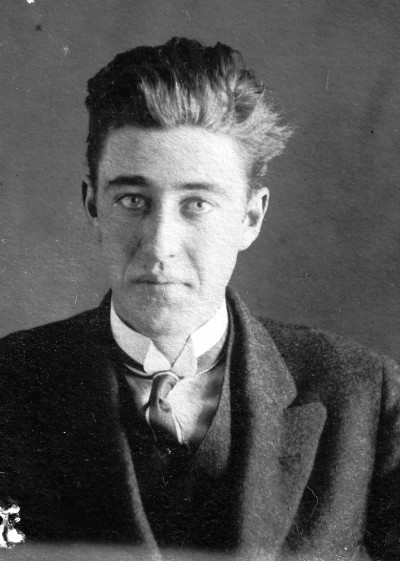William Beaudine (William Washington Beaudine)

Born in New York City, William Beaudine began his career as an actor in 1909 with American Mutoscope and Biograph Company. He married Marguerite Fleischer in 1914, to whom he stayed married until his death and who died in 1970 (Marguerite’s sister was the mother of actor Bobby Anderson). He was the brother of director Harold Beaudine. In 1915 he was hired as an actor and director by the Kalem Company. He was an assistant to director D.W. Griffith on The Birth of a Nation and Intolerance. By the time he was 23 Beaudine had directed his first picture, a short called Almost a King (1915). He would continue to direct shorts exclusively until 1922, when he shifted his efforts into making feature-length films. Beaudine directed silent films for Goldwyn Pictures (before it became part of MGM), Metro Pictures (also before MGM), First National Pictures, Principal and Warner Brothers. In 1926 he made Sparrows, the story of orphans imprisoned in a swamp farm starring Mary Pickford. Beaudine had at least 30 pictures to his credit before the sound era began. Among his first sound films were short Mack Sennett comedies; he made at least one film for Sennett while contractually bound elsewhere, resulting in his adopting the pseudonym “William Crowley.” He would occasionally use the pseudonym in later years, usually as “William X. Crowley.” He ground out several movies annually for Fox Films, Warner Brothers, Paramount, and Universal Pictures. His most famous credit of the early 1930s is The Old-Fashioned Way, a comedy about old-time show folks starring W. C. Fields. Beaudine was one of a number of experienced directors (including Raoul Walsh and Allan Dwan) who were brought to England from Hollywood in the 1930s to work on what were in all other respects very British productions. Beaudine directed four films there starring Will Hay, including Boys Will Be Boys (1935) and Where There’s a Will (1936), and the George Formby comedy Feather Your Nest (1937).
Beaudine returned to America in 1937 and had trouble re-establishing himself at the major studios. Once widely known as an A-list director of important productions, Beaudine had commanded a premium salary in the late 1920s that Hollywood producers of the late 1930s didn’t want to match. He worked briefly at Warner Brothers, with whom he had been associated in Britain, and then waited for offers on his terms. They never came. Beaudine had lost much of his personal fortune through no fault of his own (a bank he bought an interest in had failed, and much of his income was claimed by the British government in taxes). In 1940 publicist-turned-producer Jed Buell approached Beaudine to direct an all-black-cast feature for Buell’s Dixie National Pictures. The salary was a flat $500 for one week’s work. Beaudine knew that if he accepted this job, he would henceforth be associated with low-budget films and would never command his old salary again, but with his finances at a low ebb Beaudine accepted the assignment. Buell was pleased with Beaudine’s professionalism and inventive ways to maximize a shoestring budget. He hired Beaudine to direct Misbehaving Husbands (1940), noteworthy at the time as the comeback feature of silent-screen clown Harry Langdon. It was a humble comeback for both Langdon and Beaudine, since it was released by the tiny Producers Releasing Corporation, whose budgets seldom ventured beyond five figures, but it was successful and reestablished both Langdon and Beaudine, albeit in B pictures.
William Beaudine became a low-budget specialist, forsaking his artistic ambitions in favor of strictly commercial film fare, and recouping his financial losses through sheer volume of work. He made dozens of comedies, thrillers and melodramas with such popular personalities as Bela Lugosi, Ralph Byrd, Edmund Lowe, Jean Parker, and The East Side Kids. He became a fixture at the ambitious Monogram Pictures, and directed fully half of the 48 comedy features starring The Bowery Boys. By this time Beaudine had a reputation for being a resourceful, no-nonsense director who could make feature films in a matter of days, sometimes as few as five. He occasionally directed special-interest productions, like the 1945 crusade-for-sex-education feature Mom and Dad, produced by Kroger Babb, and the 1950 religious drama Again… Pioneers, produced by the Protestant Film Commission. The authors of the 1978 book “The 50 Worst Films of All Time” gave William Beaudine the unflattering nickname “One-Shot,” because he always seemed to shoot just one take, regardless of actors flubbing their lines or special effects malfunctioning. It is true that Beaudine shot economically—he usually had no choice—but he was always professional, and actually did shoot multiple takes of movie scenes. (The coming-attractions trailers of Beaudine’s films are rife with alternate takes.)
Beaudine was often entrusted with series films, including the Torchy Blane, The East Side Kids, Jiggs and Maggie, The Shadow, Charlie Chan and The Bowery Boys series. His efficiency was so well known that Walt Disney hired him to direct some of his television projects of the 1950s and had him direct a feature western, Ten Who Dared (1960). Beaudine became even busier in TV, directing Naked City, The Green Hornet, and dozens of Lassie episodes. His last two feature films, both released in 1966, were the horror-westerns Billy the Kid vs. Dracula (with John Carradine) and Jesse James Meets Frankenstein’s Daughter. By the end of the decade he was the industry’s oldest working professional, having started in 1909. Beaudine died of uremic poisoning in 1970 in California and was interred in the Hollywood Forever Cemetery in Hollywood.
Born
- January, 15, 1892
- USA
- New York, New York
Died
- March, 18, 1970
- USA
- Canoga Park, California
Cause of Death
- uremic poisoning
Cemetery
- Hollywood Forever Cemetery
- Hollywood, California
- USA


